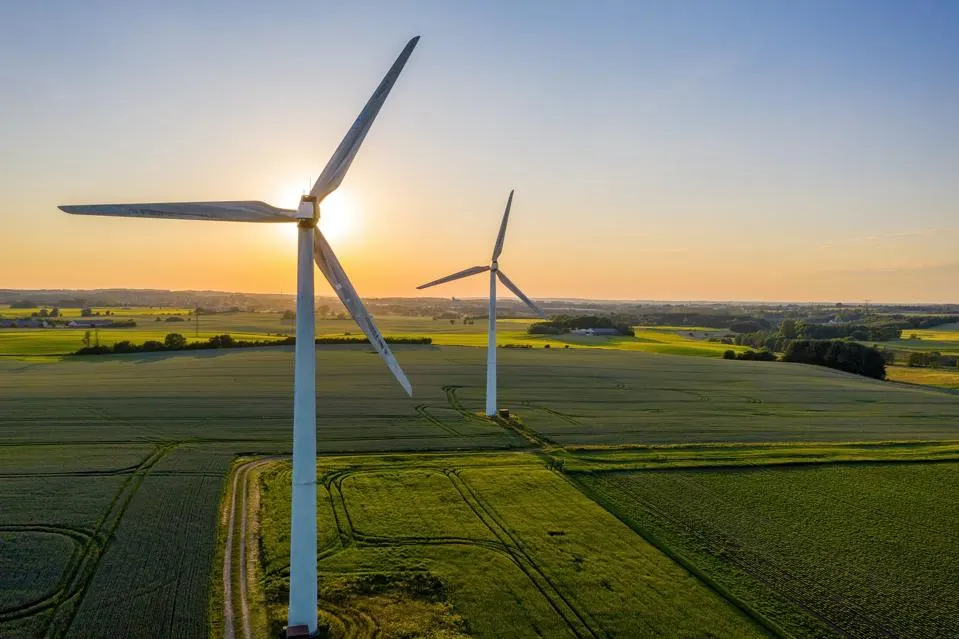Once synonymous with climate skepticism, major oil, gas and natural gas players seem to be orchestrating a paradigm shift. They are not merely paying lip service to climate tech; they are actively seeking partnerships with venture funds and climate startups to redefine how and what kind of energy they deliver.
Whether you’re cynical about their motives or welcome them, the potential of energy companies seriously “turning a new leaf” by supporting their alternative energy counterparts is crucial because large companies traditionally experiment with this kind of innovation in-house and keep their proprietary secrets close to their chests. Instead, these companies are effectively saying, “Hey, we can’t wait for someone else to be incredibly successful and sign up for their services.”
The energy sector is not known for quick innovation, and it appears that the energy giants are having an epiphany regarding their explorations in climate tech. Changing consumer demand and variable scale have always been challenges for the sector. While shifts to alternative sources are slow, costs continue to rise, and (frankly) suppliers struggle to manage the blowback when customers get their bills at the end of each month.
Smart Home Tech: A Catalyst For Energy Evolution
In a world where technological integration is becoming increasingly ubiquitous, energy-centric businesses see the opportunity to capitalize on the ever-expanding Internet of Things (IoT) landscape. I think the XCEL smart thermostat program (which my home participates in) gives us a glimpse into the potential of smart homes.
While the concept of a smart thermostat isn’t groundbreaking, the real game-changer lies in the increasing ubiquity of interconnected monitoring systems. This interconnected web allows for granular changes in energy consumption to aggregate into impactful, region-wide outcomes, disrupting the traditional energy delivery and scale management model. Consumers benefit from lower bills, while energy companies can better manage and plan sourcing and delivery to watch costs.
Climate: A Hot Topic For Energy Companies
Governments on the local and national levels continue to focus on policies and programs that ease the cost of adoption of climate technologies as well as where and how energy is produced.
Even if political leadership shifts, government investment in cleantech seems likely to continue. If the government of the day doesn’t use or mandate climate technology, at the very least, countries want to lead in their research and production.
Redefining The Narrative: Old Energy Unleashes New Possibilities
It can’t be understated the change in mindset among big energy—we’re seeing a transformation to a partner that is actively seeking and participating in the startup and venture space to take (or at least be seen to take) real action on ESG (environmental, social and governance) policies and create new streams of revenue.
Energy companies are investing. They are signing LOIs for early companies to help them grow. They’re willing to be first customers. That’s a pretty big deal because many big enterprises don’t welcome early competition. They’d rather take this in-house than let a startup nip at their market share.
This shift signals that traditional energy companies are looking at alternative energy as more than a mere rebranding exercise. They’re making a tangible commitment to rewriting the energy playbook. Rather than waiting for a cataclysmic event to force change, these industry titans are opting for a more realistic, albeit incremental, approach. The message is clear: Progress need not come at the expense of existing systems; it can work in tandem, fostering a smoother transition to a more sustainable future.
A Supercharge For Clean Energy Founders
In this whirlwind of government support, subsidies and the newfound enthusiasm of energy corporations in the clean-tech space, founders find themselves at the epicenter of a renaissance.
The narrative of the past decade, warning enterprises of startup disruption, is being flipped on its head. The energy sector is not merely embracing change; it is actively seeking it out, signaling a new era of collaboration and innovation. They’re essentially saying we welcome disruption and can’t wait to be the first buyer of it. Oh, and by the way, we also want the benefits, so we’re going to invest in it, too.
To be clear, I see this movement as acknowledging credit where credit is due. While historical accountability for big energy’s role in our current climate crisis is essential, the present landscape offers a unique opportunity for founders targeting commercial energy outcomes.
That makes this not just a good time but an exceptional time to be a founder in the climate tech space. With this unique combination of innovative ideas, industry partnerships and government support, founders have an unprecedented opportunity to shape the future of clean energy and contribute to a more sustainable world.
To ensure these partnerships succeed, both sides must focus on collaboration’s broader benefits. Energy companies, especially if they’re in the role of an investor or a prime customer of a new venture, obviously have the upper hand in these types of relationships. Leadership must resist the temptation to focus solely on their company’s needs. Energy can offer direction on how new technology fits their business while also encouraging and offering advice for other market segments—to deliver even greater returns.
Meanwhile, climate tech innovators can optimize their partnerships with energy companies by striving for greater transparency. Talk comfortably with your partners about your questions and roadblocks. Share what you want to learn from your concept experiments and the struggles of finding product-market fit. Energy company leadership has the connections and alliances that could help founders answer those questions quickly and avoid years of market exploration.






